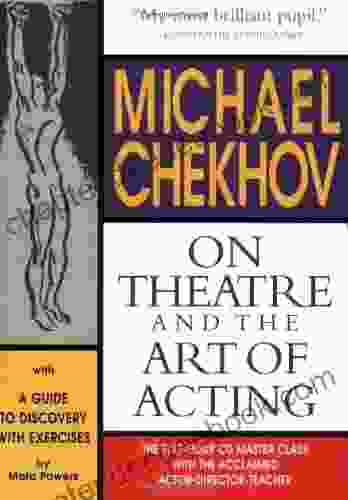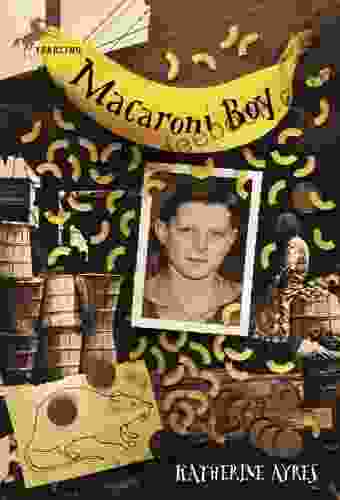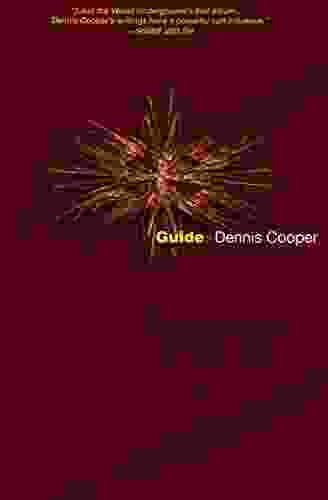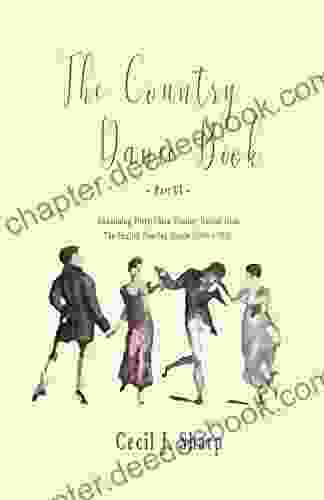On Theatre and the Art of Acting: An Exploration of the Creative Process

Theatre, a captivating art form that combines literature, music, dance, and visual arts, has a rich and diverse history that spans centuries. Its roots can be traced back to ancient rituals and ceremonies, where storytelling, music, and dance were used to express shared beliefs and experiences. 4.1 out of 5 In ancient Greece, theatre flourished as a form of public entertainment and civic expression. The great playwrights of that era, such as Sophocles, Euripides, and Aristophanes, explored themes of human nature, fate, and the gods through their dramatic works. Greek theatre influenced the development of Roman theatre, which in turn had a significant impact on the theatre of the Middle Ages. During the Renaissance, theatre experienced a revival in Europe. Playwrights such as William Shakespeare and Christopher Marlowe wrote plays that explored complex human emotions and the human condition. This era also saw the emergence of professional acting companies and the development of elaborate舞台设计. In the 19th century, theatre underwent significant changes with the rise of realism and naturalism. Playwrights such as Henrik Ibsen and Anton Chekhov sought to portray life as it truly was, focusing on everyday experiences and social issues. This approach influenced the acting style of the time, which became more naturalistic and understated. The 20th century witnessed the emergence of new theatrical forms, such as expressionism, absurdism, and experimental theatre. Playwrights such as Samuel Beckett, Eugene Ionesco, and Bertolt Brecht challenged traditional theatrical conventions and explored new ways of expressing the human experience. Acting is the art of performing a fictional character on stage. It involves the use of the voice, body, and emotions to create a believable and engaging performance. The essential elements of acting include: Throughout history, actors and directors have developed a variety of techniques and theories to help actors create believable and engaging performances. Some of the most influential techniques and theories include: Theatre has the power to transform both the audience and the actors. For the audience, theatre can provide a unique opportunity to experience different worlds, perspectives, and emotions. It can challenge our assumptions, spark our imaginations, and help us to understand ourselves and others better. For actors, theatre can be a transformative experience that allows them to develop their creativity, empathy, and self-awareness. The process of creating a character and bringing it to life can be deeply rewarding and can help actors to grow as both artists and individuals. Theatre has a long history of influencing society and culture. Throughout history, plays have been used to explore social and political issues, to educate audiences, and to promote change. In the 20th century, theatre played a significant role in the civil rights movement. Plays such as Lorraine Hansberry's "A Raisin in the Sun" and August Wilson's "Fences" brought attention to the struggles faced by African Americans and helped to further the cause of equality. Theatre continues to play an important role in society today. Plays that explore contemporary issues such as climate change, immigration, and economic inequality can raise awareness and spark public debate. Throughout history, there have been many great actors and playwrights who have made significant contributions to the art of theatre. Some of the most influential figures include: Theatre is a powerful and transformative art form that has the ability to entertain, educate, and inspire. Through the work of talented actors and playwrights, theatre has the power to change lives and make the world a better place.The Origins and Evolution of Theatre
Language : English File size : 892 KB Text-to-Speech : Enabled Word Wise : Enabled Print length : 64 pages Screen Reader : Supported The Essential Elements of Acting
Techniques and Theories of Acting
The Transformative Power of Theatre
The Impact of Theatre on Society
The Legacy of Great Actors and Playwrights
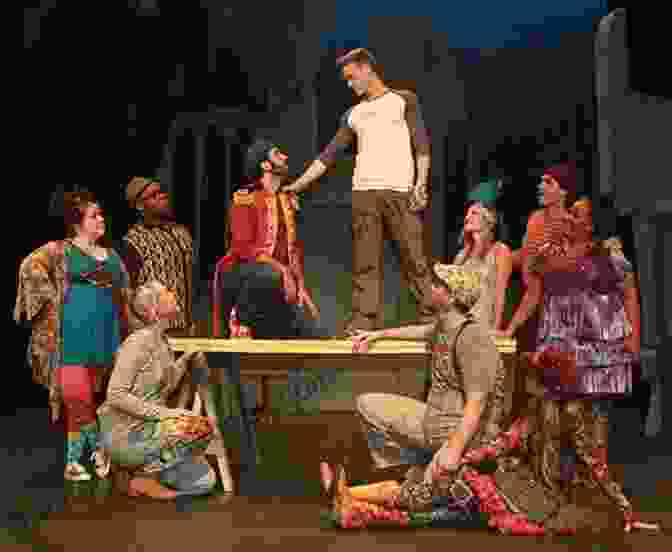
4.1 out of 5
| Language | : | English |
| File size | : | 892 KB |
| Text-to-Speech | : | Enabled |
| Word Wise | : | Enabled |
| Print length | : | 64 pages |
| Screen Reader | : | Supported |
Do you want to contribute by writing guest posts on this blog?
Please contact us and send us a resume of previous articles that you have written.
 Novel
Novel Page
Page Text
Text Library
Library Paperback
Paperback Magazine
Magazine Newspaper
Newspaper Paragraph
Paragraph Sentence
Sentence Bookmark
Bookmark Bibliography
Bibliography Preface
Preface Annotation
Annotation Footnote
Footnote Classics
Classics Autobiography
Autobiography Memoir
Memoir Reference
Reference Encyclopedia
Encyclopedia Dictionary
Dictionary Narrator
Narrator Character
Character Librarian
Librarian Catalog
Catalog Card Catalog
Card Catalog Borrowing
Borrowing Archives
Archives Periodicals
Periodicals Research
Research Lending
Lending Reserve
Reserve Academic
Academic Reading Room
Reading Room Special Collections
Special Collections Literacy
Literacy Storytelling
Storytelling Awards
Awards Book Club
Book Club Theory
Theory Textbooks
Textbooks Edmund Spenser
Edmund Spenser Phil Wall
Phil Wall Johanna Neuman
Johanna Neuman T Kingfisher
T Kingfisher Jamison Roberts
Jamison Roberts Shelly Laurenston
Shelly Laurenston Richard Woodward
Richard Woodward T S Eliot
T S Eliot Shifio Patterns
Shifio Patterns Shayla Black
Shayla Black Charles K Hyde
Charles K Hyde Jo Edkins
Jo Edkins Martha Finley
Martha Finley Diane Eichenbaum
Diane Eichenbaum Vanessa Williams
Vanessa Williams Susan Normington
Susan Normington G Lawrence
G Lawrence Sun Tzu
Sun Tzu Judy Ferro
Judy Ferro Jacy Morris
Jacy Morris
Light bulbAdvertise smarter! Our strategic ad space ensures maximum exposure. Reserve your spot today!
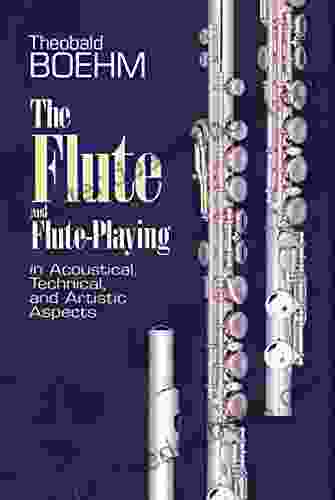
 Michael SimmonsThe Flute and Flute Playing: A Comprehensive Guide to the Instrument and Its...
Michael SimmonsThe Flute and Flute Playing: A Comprehensive Guide to the Instrument and Its...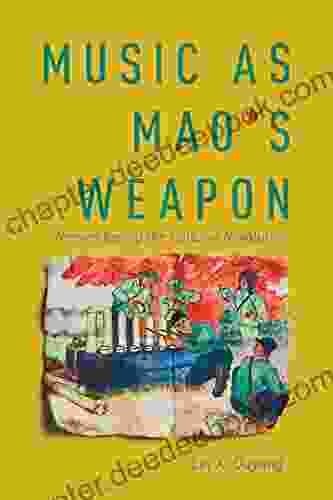
 Christopher WoodsMusic as Mao's Weapon: The Political and Cultural Impact of Revolutionary...
Christopher WoodsMusic as Mao's Weapon: The Political and Cultural Impact of Revolutionary... Zadie SmithFollow ·18.1k
Zadie SmithFollow ·18.1k Vernon BlairFollow ·19.1k
Vernon BlairFollow ·19.1k Giovanni MitchellFollow ·6.9k
Giovanni MitchellFollow ·6.9k Henry GreenFollow ·5.6k
Henry GreenFollow ·5.6k Floyd PowellFollow ·18.6k
Floyd PowellFollow ·18.6k Marcus BellFollow ·2k
Marcus BellFollow ·2k Stuart BlairFollow ·9.7k
Stuart BlairFollow ·9.7k Jon ReedFollow ·8.7k
Jon ReedFollow ·8.7k
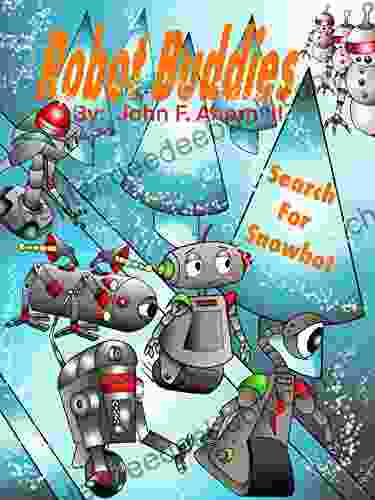
 F. Scott Fitzgerald
F. Scott FitzgeraldRobot Buddies: Search For Snowbot
In the realm of...

 Mario Vargas Llosa
Mario Vargas LlosaUnlocking Academic Success: A Comprehensive Guide to...
In the ever-challenging academic...

 Gabriel Blair
Gabriel BlairMake $000 Per Month Selling Your YouTube Freelancing...
Are you looking for a...
4.1 out of 5
| Language | : | English |
| File size | : | 892 KB |
| Text-to-Speech | : | Enabled |
| Word Wise | : | Enabled |
| Print length | : | 64 pages |
| Screen Reader | : | Supported |


